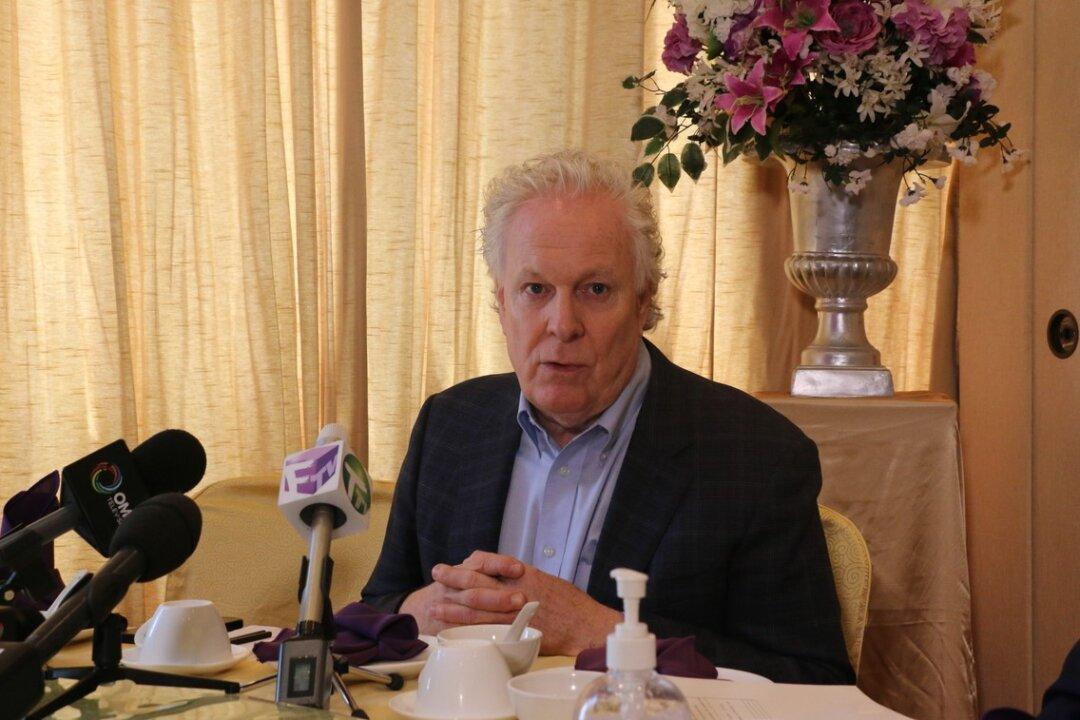TORONTO—Conservative Party leadership candidate Jean Charest says he will be “firm” on all dealings with China if he becomes prime minister, standing up for the Canadian values of human rights and freedoms. But he also questions how Ottawa can voice concern about Beijing’s transgressions without some Chinese-Canadians feeling they are being targeted.
The former Quebec premier made the remarks during an event talking with Chinese-language media in Toronto on April 20. He told reporters that his approach to China would take into account “the fact that China has become a superpower” or at least an “emerging superpower.”





